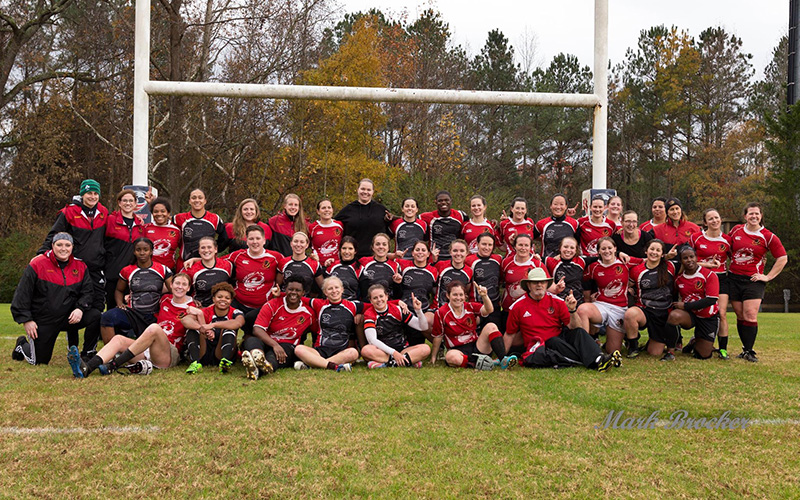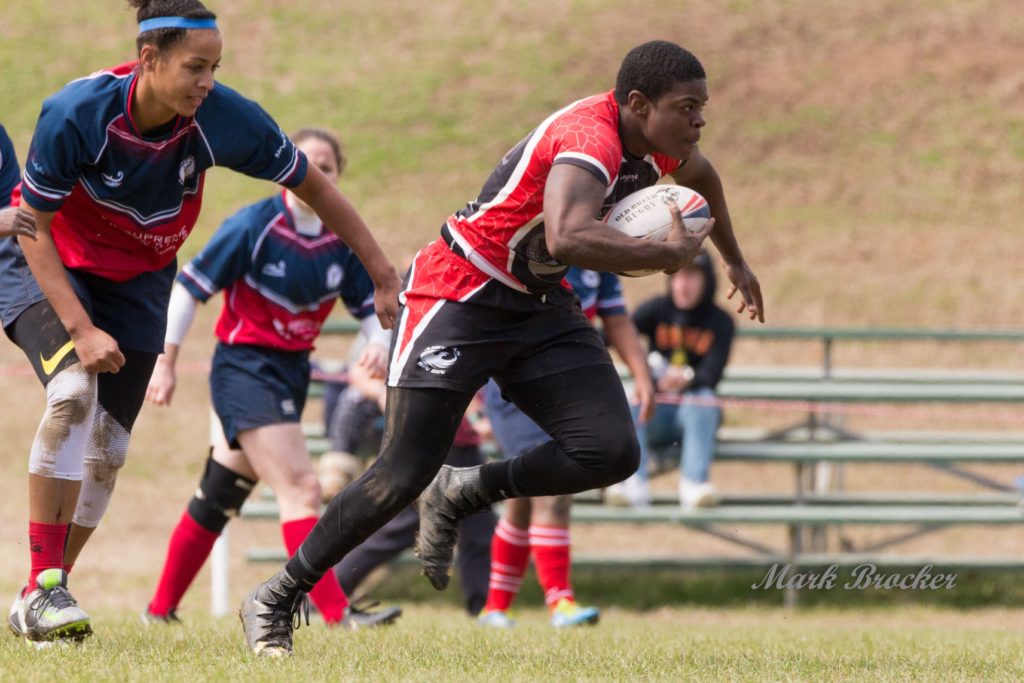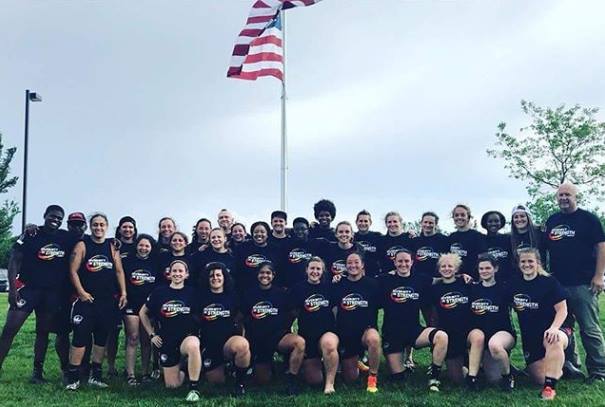Meet Transgender Rugby Player Shawn Gatewood Who Knows Diversity is Strength

It was only two months ago. 60 days since a traditional sport rivalry escalated into something much more – something ugly and maddening; something I’ll never forget.
It was the Mid-Atlantic D1 Women’s Rugby Semi-Final game, and it was the culminating event of months of arguing, debating and fighting for my ability to compete as a transgender male rugby athlete. You see, teams from across the country had been lobbying to have me banned from competing, challenging my identity and motivations for wanting to participate in the sport I love. Their unsuccessful efforts reached an inflection point in the championship game, resulting in multiple high tackles (including players trying to tackle me around my neck), getting kicked in the head from players coming off their feet to jump over me, and finally to derogatory, transphobic hate speech.
My path to that semi-final game was one of adversity, perseverance, and hope. It began as a young child when I first fell in love with the game of basketball. While sports continued to be an integral part of my life, I battled internally with my self-identification. I openly came out as transgender in my freshman year of college, but immediately took it back due to the stigma surrounding the transgender community. To my knowledge, there was very little representation, discussion, or resources for young transgender individuals to express and come to terms with their transition. Due to my religious upbringing, both of my parents being pastors, I delayed coming to terms with my transition. During this period, I struggled with depression and anxiety because I felt I wasn’t living an authentic lifestyle that embodied who I was and who I wanted to be. In December of 2016, I came out as a trans-male. After publicly coming out, one thing became blatantly clear: while gender is a wide spectrum of identities and expressions, sport remains very binary and sex-segregated, in its policies and its cultures.

Photo Credit: Mark Brocker
Shortly after coming out as trans, I joined the Raleigh Venom D1 Women’s Rugby team in Raleigh, North Carolina. I was open with my team from the start about my gender identity. I couldn’t be prouder to be a part of a team that, even though I had known them for a few short months, not only accepted me but made me feel a part of the Venom family. When I told the team the use of my pronouns he/him were a vital part of my identity they didn’t hesitate to make that adjustment. I had become part of a family that was so diverse and inclusive, and rugby as a whole seemed to accept anyone from any background and lifestyle. They say rugby is an interesting sport because you can beat each other up on the field and go for beers afterward with your opponents and it’s one big rugby family. It’s expected that people have different views and beliefs, but in rugby, they express them in ways that are always respectful. At least that’s what I thought.
Shortly after Nationals my rookie season, I decided to have top-surgery, something that unbeknownst to a majority of my teammates, I had rescheduled in order to finish my first season. I spent the summer recovering and getting my body in shape to come back faster and stronger for the fall season. Our fall 2018 season started off like the last, but changes in my appearance had become noticeable. My coach would say, “I look like a grown man” playing with a bunch of women. After a hard-fought win against a rival team, I found out they had filed a complaint with USA Rugby questioning my eligibility as a player due to my appearance. Per this team, they “questioned my medical eligibility and right to play due to concerns over player safety” solely based on my appearance. USA Rugby formed a committee and communicated directly with my coaches and club president but it was brought up as performance enhancement issue and not a transgender issue due to legal concerns. I stated as I have from the beginning that I have been and continue to be in compliant with all USA Rugby rules and regulations. Since USA Rugby didn’t have me removed from the sport, this rival team decided to reach out to other teams we competed against and beaten, encouraging them to sign a petition to have me removed from the game. Anyone who knows me would tell you that I hate being the topic of conversation or the center of attention. I just want to play rugby. My coach and I have been cooperative and available to USA Rugby, Mid-Atlantic Officials, and the USAR Medical Director for all questioning and have voluntarily agreed to testing at any time.

The Raleigh Venom wearing “Diversity is Strength” shirts to support Shawn.
Throughout this process, I’ve realized how outdated the USA Rugby policy is and the changes that need to be made. The policy requires the person who is seeking to transition to make copious amounts of changes to themselves in order to play – including gender alignment surgeries, hormone replacement therapy, and legal gender changes. These are things that people sometimes can’t afford or simply do not want. I don’t believe it’s fair to ask someone to do undergo crucial life changes in order to be a part of the sport.
I’m still coming to terms with my transition and being comfortable within my own skin and within this sport. I hope that by being open about my experiences, others will feel they can be comfortable with whoever they are as well. Last year, there were over 28 trans people murdered in the United States. This issue is much bigger than me and my story – it’s one of global significance. We must commit to providing the resources needed to help our trans youth who are being degraded and discriminated against daily.
I hope you’ll join me on my journey to acceptance and equality.
“Discrimination cannot be fought alone. It must be defeated together. Diversity is Strength.”
Shawn